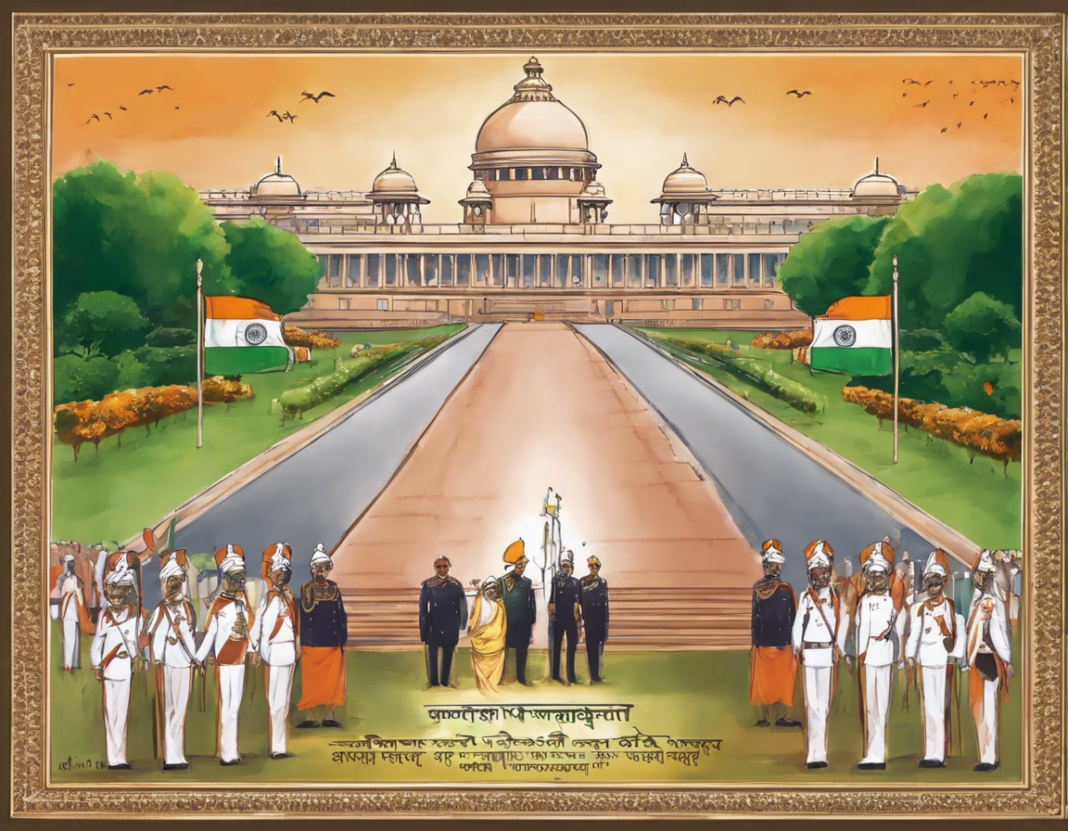Introduction
Bharat ka Rashtrapati is the President of India, the ceremonial head of state elected by an electoral college comprising elected members of both houses of parliament, the Lok Sabha and the Rajya Sabha, as well as members of the Legislative Assemblies of the Indian states. The President serves a term of five years and is eligible for re-election. This prestigious position is filled by an individual who upholds the Indian constitution, symbolizes unity, integrity, and the sovereignty of the nation, and acts as a representative of the people of India.
The Role of the President
The President of India holds a primarily ceremonial position as the head of state, but their duties and responsibilities are crucial to the functioning of the Indian government. Some of the key roles and responsibilities of the President include:
1. Executive Powers:
– Appointing the Prime Minister and Council of Ministers.
– Summoning and proroguing sessions of Parliament.
– Dissolving the Lok Sabha.
– Assenting to bills passed by Parliament.
2. Legislative Powers:
– Addressing the Parliament at the beginning of each session.
– Sending messages to the houses of Parliament.
– Issuing ordinances when Parliament is not in session.
3. Judicial Powers:
– Appointing the Chief Justice and other judges of the Supreme Court and High Courts.
– Pardoning criminals and reducing their sentences.
4. Diplomatic Powers:
– Representing India in international affairs.
– Receiving foreign ambassadors and high commissioners.
Current President of India
As of September 2021, the President of India is Ram Nath Kovind. He assumed office on July 25, 2017, succeeding Pranab Mukherjee. Before his presidency, Ram Nath Kovind served as the Governor of Bihar from 2015 to 2017.
Election Process
The President of India is elected indirectly by an electoral college consisting of:
– Elected members of both houses of Parliament.
– Elected members of the Legislative Assemblies of the states and union territories of India.
The voting for the presidential election is done through a secret ballot system, and the candidate who secures more than half of the total electoral votes is declared the winner.
Qualifications for Becoming President
To be eligible for the position of President of India, a candidate must:
– Be a citizen of India.
– Be at least 35 years of age.
– Be eligible to be a member of the Lok Sabha.
– Not hold any office of profit under the Government of India, any state government, or any local authority.
Frequently Asked Questions (FAQs)
1. How long is the term of office for the President of India?
The President of India serves a term of five years and is eligible for re-election to serve additional terms.
2. Can the President of India be removed from office before completing their term?
Yes, the President can be impeached for violation of the constitution. The procedure for the removal of the President is initiated by the Parliament.
3. Does the President of India have any legislative powers?
While the President’s role is primarily ceremonial, they do have certain legislative powers such as assenting to bills passed by Parliament and issuing ordinances when Parliament is not in session.
4. Who is next in line if the President is unable to fulfill their duties?
In the event that the President is unable to discharge their functions due to illness, absence, or any other incapacity, the Vice President of India serves as the Acting President until the President resumes their duties.
5. Can the President of India veto a bill passed by Parliament?
The President has the power to return a bill, not a money bill, once for reconsideration. However, if Parliament passes the bill again and sends it back to the President, they are obligated to give their assent.
6. Can the President of India participate in the day-to-day governance of the country?
No, the President’s role is non-partisan and ceremonial. They are expected to work with the elected government and act in accordance with the advice of the Council of Ministers headed by the Prime Minister.
7. Does the President of India have any role in the appointment of judges?
Yes, the President plays a crucial role in the appointment of judges of the Supreme Court and High Courts in consultation with the Chief Justice of India.
8. Is the President of India the supreme commander of the Indian Armed Forces?
Yes, the President of India is the supreme commander of the Indian Armed Forces and has the authority to declare war or make peace subject to the approval of Parliament.
9. Can the President of India be a member of any political party?
No, the President of India is required to be impartial and cannot be a member of any political party during their term of office.
10. What is the process for electing the President of India?
The President of India is elected indirectly by an electoral college consisting of elected members of both houses of Parliament and the elected members of the Legislative Assemblies of states and Union territories. The candidate who secures more than half of the total electoral votes is declared the winner.









